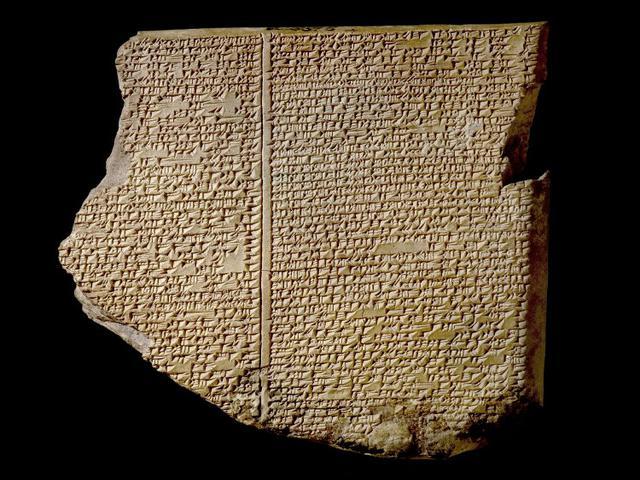The Flood Tablet

The Flood Tablet, also known as the Epic of Gilgamesh Tablet XI, is a significant piece of ancient Mesopotamian literature that dates back to around 700 BCE. This clay tablet tells the story of a great flood that was intended to destroy the world, similar to the biblical tale of Noah's Ark. The protagonist of the story, Ut-napishti, is instructed by the gods to build a massive boat to save his family and various animals from the impending disaster. This narrative has captivated scholars and historians since its discovery in the Library of King Assurbanipal in the 19th century.
The Flood Tablet is a part of the larger epic poem of Gilgamesh, which is considered one of the earliest works of world literature. Gilgamesh, the legendary hero of the story, embarks on a quest for immortality but ultimately learns valuable lessons about mortality and the human condition. The tablet itself is intricately inscribed with cuneiform script, showcasing the advanced writing system of the ancient Mesopotamians. Its preservation over centuries is a testament to the enduring legacy of Mesopotamian culture and storytelling.
The discovery and translation of the Flood Tablet in 1872 caused a sensation in the academic world, as it raised questions about the similarities between Mesopotamian myths and biblical narratives. The tablet's depiction of a catastrophic flood and a hero's quest for salvation resonates with themes found in various cultures and religions around the world. Its inclusion in the epic of Gilgamesh highlights the importance of storytelling and mythology in ancient Mesopotamian society.
Visitors to museums or historical sites where the Flood Tablet is displayed can marvel at the intricate details of the cuneiform script and the storytelling prowess of ancient Mesopotamian poets. The tablet serves as a window into the rich cultural heritage of the region and offers insights into the beliefs and values of its people. As tourists explore the significance of the Flood Tablet, they can gain a deeper appreciation for the enduring power of storytelling and the universal themes that connect humanity across time and space.
© ChatGPT 3.5